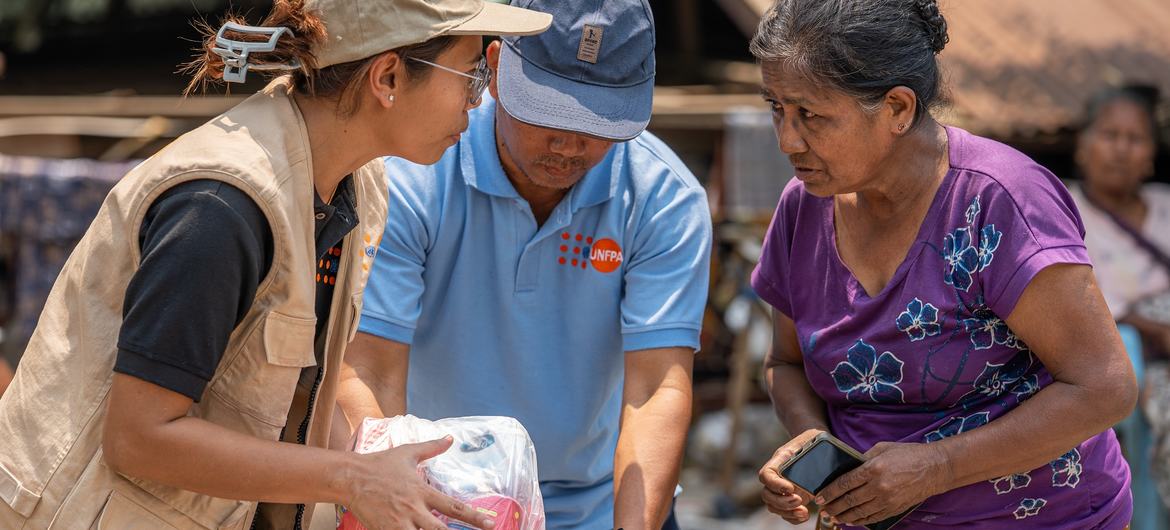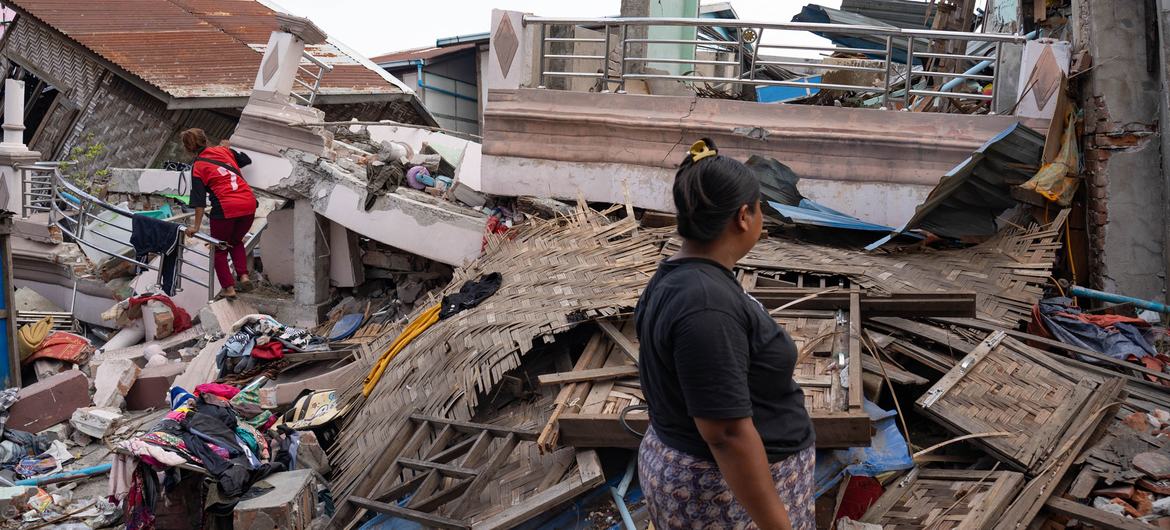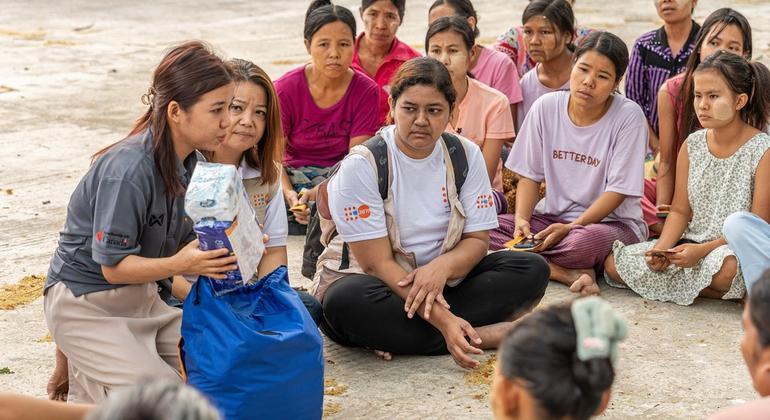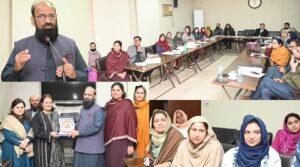The communications and defense analyst of the Yangon office of the UN sexual and reproductive health agency (UNFPA) saw the devastating consequences of the earthquake during a one -week visit to the Mandalay region, one of the regions most affected by the disaster.
Thein Zaw Win, Communications and Advocacy Analy at the Yangon office of the UNFPA, speaks with a woman affected by the recent earthquake in Mandalay, Myanmar.
“It was in Yangon when the earthquake hit. Then, news reports began gradually indicating that many cities had suffered significant victims. Buildings, roads, homes, schools and hospitals were reduced to debris and people were trapped under the rubble.
The communication systems were low, so I decided to travel to the affected areas and support the help efforts.
Women and girls needed support to save lives, including sexual and reproductive health services and maternal care, dignity kits, hygiene items and other essential supplies as soon as possible.
In 72 hours, the UNFPA country’s office had deployed a quick response team to provide essential services to the affected population, working with land partners.
Yangon’s trip to Mandalay usually takes approximately eight hours, but we fight to pass, due to damaged roads and collapsed bridges. We had to find alternative routes and, sometimes, even navigate through the steep fields next to the main road.
Now that the rainy season has begun, the roads are still worse, and travel has become increasingly difficult. He took us more than 10 hours to reach Mandalay.

A woman affected by the earthquake receives elements of relief, including the dignity kits of the UNFPA during the UN distribution in the saga, Myanmar.
In some areas of the city, the debris blocked the roads. Towers’ blocks had collapsed and many areas had been reduced to complete debris. Desperate families sought refuge in temporary shelters, in the streets or in front of their damaged homes.
The tremors continued for several days. Frequent power courts during the night mean that some affected areas submerged in the dark, which makes it insecure to go anywhere. To reach those affected and the delivery of help in these conditions remains a considerable challenge.
My responsibility is to interact with the communities affected by the disaster and share their stories with a broader audience. It is also vital to raise awareness about realities and needs in the field so that we can ensure support for emergency assistance. This is my mission.
I met a woman in Mandalay who visited our mobile clinic. He had lived in the city all his life, but he had never seen so much devastation. Everything collapsed in seconds. I was deeply concerned about damage to medical care facilities, as well as its ability to access medical care.

A woman in Mandalay, Myanmar, observes the devastation caused by the earthquake.
In the midst of this crisis, the UNFPA team has provided services that range from hygiene supplies, protection against gender violence and support for mental health for women and girls. They also support maternal and newborn care services. I saw for myself the unwavering resilience of humanitarian workers and the way in which UN agencies, civil society organizations and NGOs work together.
Myanmar was already suffering from political instability and has now been more devastated by this destructive earthquake. It is extremely difficult to deliver help to communities in Sagaing and Mandalay, where the armed conflict is ongoing.
In the current context, with the conditions of the imminent monsoon, people are terrified of what this season can bring.
The country is also experiencing the impact of the decrease in the financing of global aid.
UNFPA, like other UN agencies and humanitarian organizations, these are limitations of resources, and we have issued an appeal for emergency assistance to support populations in critical need.
The suffering of women and children affected by the earthquake is deeply distressing, and we need all our strength and resistance to help them.
It is a heartbreaking experience to witness despair in people’s eyes and listen to their loss stories, but we are trying to give them the dignity and hope that they legitimately deserve in these difficult times. “




